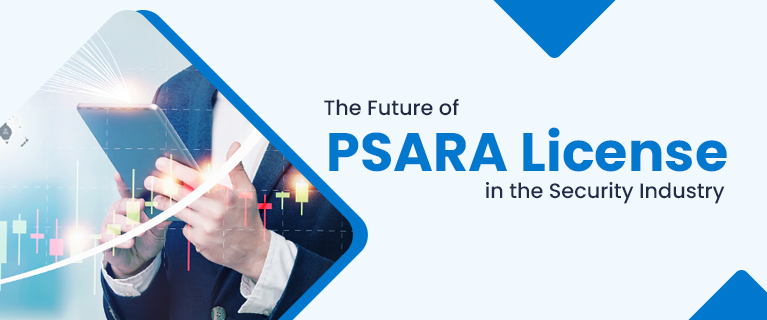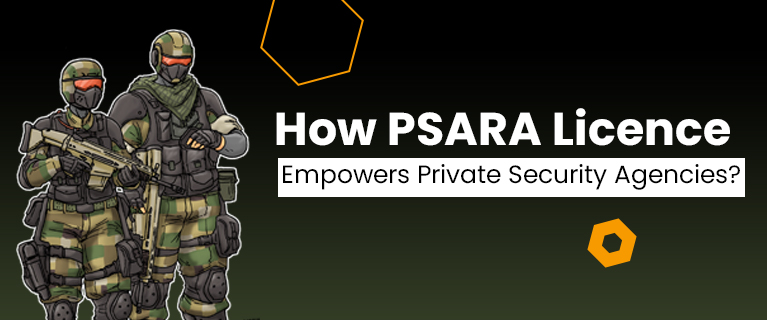Overview of the Security PSARA License
The Private Security Agencies Regulation Act (PSARA) license is a mandatory requirement for private security agencies operating in India. This license is issued by the respective state government authorities and is aimed at regulating and standardizing the functioning of private security agencies to ensure the safety and security of individuals, organizations, and properties.
Obtaining a PSARA license in India involves a comprehensive process aimed at regulating private security agencies. The procedure includes submitting an application to the state government, thorough background checks on owners and personnel, verifying training credentials, ensuring proper security infrastructure, and demonstrating financial stability through liability insurance and financial records. The agency must commit to complying with regulations, maintaining records, adhering to work-hour limits, and following emergency protocols. Upon approval, the state government issues the PSARA license, outlining the agency's operational scope and area. Renewal and compliance maintenance are essential aspects of upholding the license. Due to its complexity, agencies often seek professional assistance to navigate the intricacies of the application process and regulatory requirements efficiently.
Read also this -: Demystifying the PSARA Security LicenseThe PSARA license is of paramount importance due to several reasons:
1. Legal Compliance and Credibility: Obtaining a PSARA license demonstrates that a private security agency is operating within the legal framework established by the government. It adds credibility and trustworthiness to the agency's services, assuring clients that the agency adheres to the prescribed regulations.
2. Quality Assurance: The PSARA license mandates that private security agencies follow specific guidelines, procedures, and standards set by the government. This ensures that the agency maintains a certain level of quality in its operations, including the training and deployment of security personnel.
3. Safety and Accountability: Private security agencies play a critical role in ensuring the safety and security of individuals and properties. The PSARA license ensures that these agencies are held accountable for their actions, which is crucial for building public trust and maintaining law and order.
4. Regulation of Workforce: The PSARA license necessitates that security personnel undergo proper training and background checks before being employed. This helps in maintaining a skilled and responsible workforce that is well-prepared to handle security-related tasks.
5. Protection of Human Rights: The PSARA license emphasizes the protection of human rights, ensuring that the rights and dignity of individuals are upheld while providing security services. This prevents instances of abuse and ensures that security personnel are well-trained to handle various situations in a professional manner.
6. Deterrence of Unregulated Practices: The PSARA license discourages the operation of unlicensed or unregulated private security agencies, preventing the proliferation of substandard or unauthorized security services that can potentially pose risks to the public.
7. Facilitation of Law Enforcement: Licensed private security agencies are often called upon to assist law enforcement agencies during events, emergencies, or situations that require heightened security. The PSARA license ensures that these agencies work in coordination with law enforcement authorities.
Read also this -: How to Apply for Security License PSARA8. Contribution to Economic Growth: The presence of well-regulated private security agencies enhances the overall security environment, which is conducive to business growth and investments. This, in turn, contributes to the economic development of the region.
In conclusion, the PSARA license is a crucial document that ensures private security agencies in India operate with integrity, professionalism, and adherence to legal standards. It benefits both the agencies and the public by promoting safety, accountability, and the protection of human rights.




Comments
Post a Comment